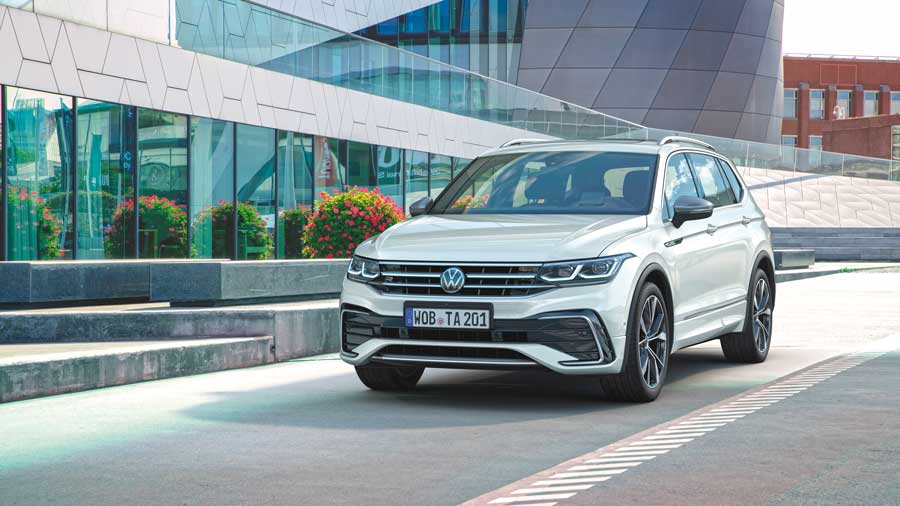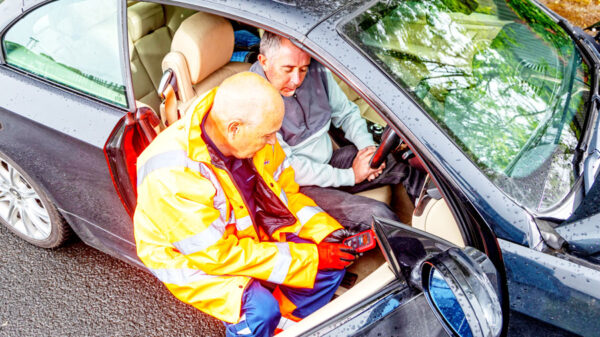A consortium of British companies has secured £1,344,552 in government funding to explore how electricity stored in electric vehicle (EV) batteries can be used to smooth out peaks in supply and demand on the UK’s electricity grid. 3ti, the UK’s leading designer, installer, funder and operator of solar car parks (SCPs), is leading the new project funded by the Department for Energy Security and Net Zero, delivered by Innovate UK. The project is setting out to integrate bi-directional DC charging and the associated power management systems into Papilio3, a pop-up solar car park and EV charging hub. The ‘V2X FastHub’ project will be a watershed moment for future energy security, providing a clear pathway to help resolve the issue of intermittent supply from renewables by using EV batteries as grid assets.
The project consortium brings together renewable energy experts 3ti with advanced EV power solutions provider Turbo Power Systems (TPS), smart energy company GridBeyond, and EV & decarbonisation experts Cenex, in a 17-month collaboration to deliver a state-of-the art system, including a six-month real-world demonstration.
3ti will lead the project, delivering a customised Papilio3 with smart grid controls and a 280 kWh DC battery. TPS will harness its DC microgrid systems, managing the bi-directional charging technology through both CCS and CHAdeMO EV charge points, while GridBeyond will oversee energy management and aggregation services through its flexible Energy Management System (EMS). Cenex will host the vehicle trial, which will include the procurement of the trial vehicle fleet, data capture, analysis and final report to Innovate UK.
Specially adapted as a V2X FastHub unit for the project, 3ti’s innovative Papilio3 is a smart grid ‘in-a-box’ that can host up to 12 EVs at a time, housed within an upcycled, rapidly deployable shipping container that can be placed almost anywhere. With a solar canopy and energy storage battery, the system has already delivered in a range of applications for factories, hospitals, leisure centres and council buildings across the UK. For this particular application, Papilio3 will implement a new DC microgrid system – integrating three times faster, bi-directional DC EV charge points with a 280 kWh integral battery storage system and 20 kWp solar roof array.
Through a ‘charge-as-a-service’ business rental model, the unit simplifies installation and reduces up-front costs – or the need for long-term commitment. The result is a commercially attractive, replicable and scalable EV charging solution for a multitude of organisations, including medium dwell-time workplaces, destinations, return-to-base fleets and delivery depots. The provision of EV charging at amenity and business locations maximises revenue generation and enables the faster roll-out of EV charging while simultaneously reducing the burden on carbon-intense rapid charging infrastructure.
Mark Potter, CTO at 3ti, said, “Everybody wants more EVs on the grid. They represent a massive scale, distributed energy resource that can be used to balance real-time supply and demand. This project will prove that bi-directional EV charging can work in the real world. Connected EVs will be teamed together to act as virtual power and energy storage facilities, with each car releasing and replenishing its stored energy according to user preferences and grid demand. This generates income and cost savings, which can be passed on to our customers.”
Smart Microgrids support a more sustainable and reliable energy transition, helping the UK meet its Net Zero and Energy Security targets. This project will be the first in the world to trial a 12 charge point DC Smart Microgrid for CCS V2X based on ISO15118-20, published in April 2022. Each charge point will also support CHAdeMO for compatibility with existing vehicles. This innovative set-up will provide faster, bi-directional EV charging at speeds up to ±30 kW, with much higher power and round-trip energy efficiency than AC solutions.
Micheal Phelan, CEO at GridBeyond, said, “GridBeyond are delighted to be participating in this innovative, ground breaking project which will help demonstrate the potential of vehicle to grid technology and how it can help support a low carbon grid of the future. We are excited to be working alongside key stakeholders and partners to bring all our expertise together for future market insight
The V2X FastHub project, part of the V2X Innovation Programme, is funded by the Department for Energy Security and Net Zero, delivered by Innovate UK. The V2X Innovation Programme is part of the up to £65m Flexibility Innovation Programme, funded from the £1 billion Net Zero Innovation Portfolio.







